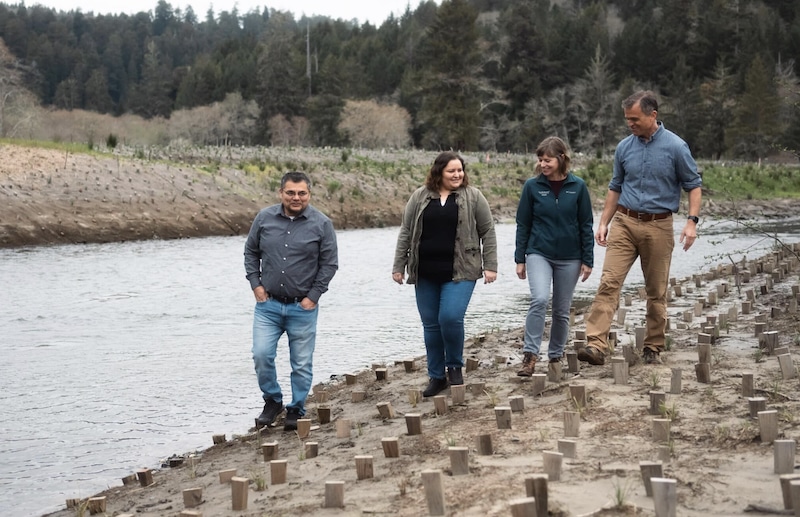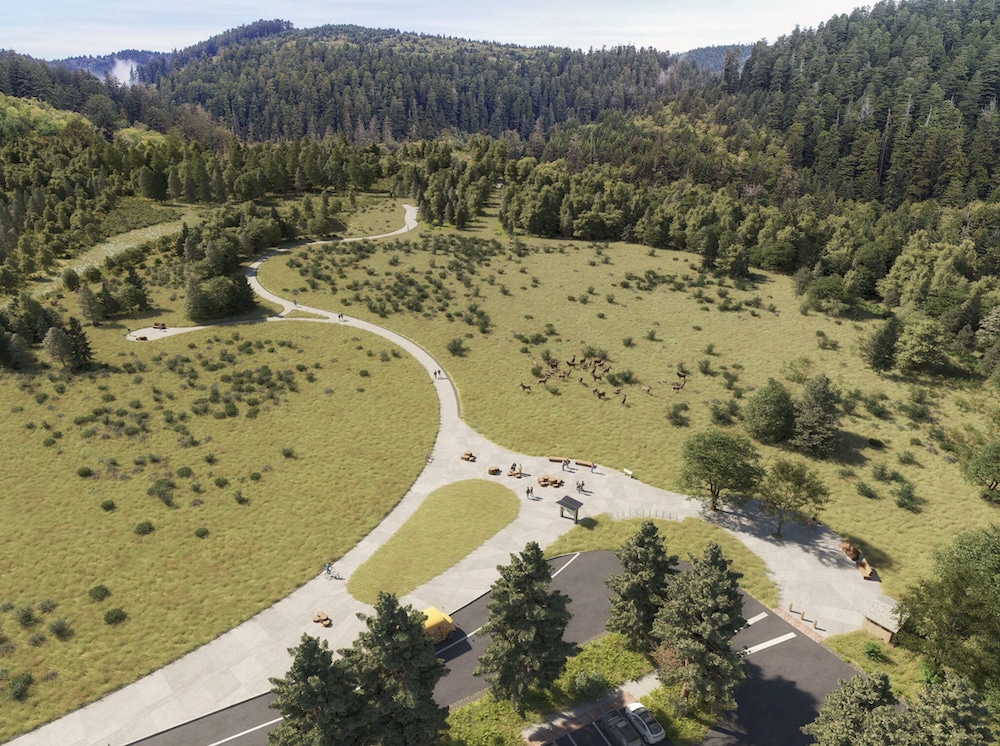Restoring Prairie Creek to ecological integrity is part of the plan for the 125-acre ‘O Rew Redwoods Gateway, which represents a first-ever model for tribal, federal, and state co-management of nationally significant land, with an Indigenous tribe at the helm. CalTrout / Michael Wier
Why you can trust us
Founded in 2005 as an Ohio-based environmental newspaper, EcoWatch is a digital platform dedicated to publishing quality, science-based content on environmental issues, causes, and solutions.
California’s Yurok Tribe had 90 percent of its territory stolen during the mid-1800s gold rush. Now, it will be getting a piece of its land back that serves as a gateway to Redwood state and national parks.
For decades, the ancient redwoods on former Yurok lands were decimated for lumber and a sawmill built to process it. Now, in a first-of-its-kind agreement between the Yurok, the National Park Service, California State Parks and nonprofit Save the Redwoods League, the Tribe will become the first to manage Tribal land alongside the National Park Service, a press release from Save the Redwoods League said.
The historic memorandum “starts the process of changing the narrative about how, by whom and for whom we steward natural lands,” said Sam Hodder, Save the Redwoods League president and CEO, in a statement, as The Guardian reported.
Rosie Clayburn, the Yurok’s cultural resources director, said getting back the 125 acres of land — called ‘O Rew in their native language — shows the “sheer will and perseverance of the Yurok people. We kind of don’t give up,” as reported by The Guardian.
Traditionally, the Tribe only used fallen trees to build their canoes and houses.
“This is work that we’ve always done, and continued to fight for, but I feel like the rest of [the] world is catching up right now and starting to see that Native people know how to manage this land the best,” Clayburn said.

In 2013, Save the Redwoods League bought the property and started working with the Tribe to restore it.
“Even after the mill closed, its aging structures and acres of asphalt marred a crucial redwoods ecosystem near the confluence of Prairie Creek and Redwood Creek. The degraded site was a painful reminder of the area’s complex history of cultural devastation, ecological destruction, and economic hardship, in the heart of traditional Yurok land,” the press release said. “Save the Redwoods League saw this scar on the landscape and recognized an incredible opportunity for healing and renewal.”
The vision of the transfer and restoration of the land is to revive the ecosystem and create an entrance to the Redwood National and State Parks that includes a traditional Yurok village, exhibits and hiking trails, Save the Redwoods League said.
“This transformation will be part of our ongoing efforts to create a world-class recreational gateway where the Yurok Tribe can welcome the public to explore the majesty of the redwood forest and their ancestral lands through the lens of conservation, revitalization, and living Indigenous culture,” the press release said.
In 2021, the team of collaborators began the $23 million Prairie Creek restoration. Asphalt equivalent to 10 football fields was removed by Indigenous crews during the first three years. A section of the creek that had been heavily degraded was restored, beginning the revitalization of steelhead, salmon and wildlife habitat.
To achieve the 2026 conveyance target, agreements and mechanisms for co-management, permanent conservation, funding and public access must be finalized.
“As the original stewards of this land, we look forward to working together with the Redwood national and state parks to manage it,” Clayburn said, as The Guardian reported.

Subscribe to get exclusive updates in our daily newsletter!
By signing up, you agree to the Terms of Use and Privacy Policy & to receive electronic communications from EcoWatch Media Group, which may include marketing promotions, advertisements and sponsored content.



